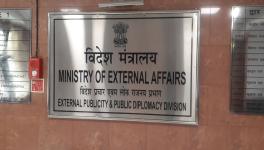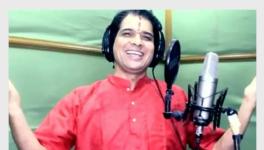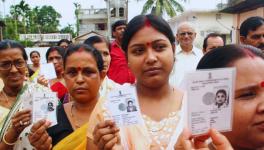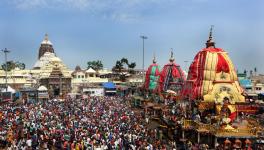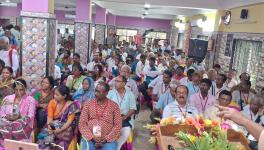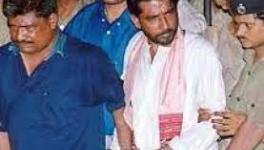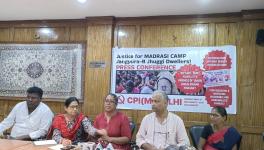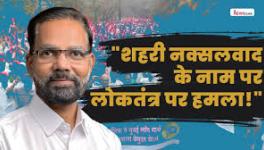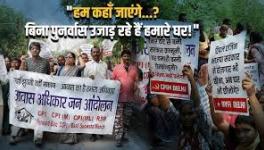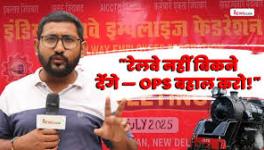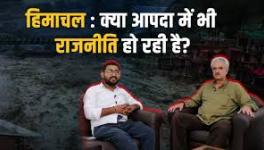When Police Comes Visiting Bookshops!

Representational Image. Image Courtesy: Pexels
Silence gives consent
[Qui tacet consentire videtur - In Latin]
There may be times when we are powerless to prevent injustice, but there must never be a time when we fail to protest ..” –
Elie Wiesel
[Elie Wiesel (1928-2016) was a Romanian Jewish writer and activist best known for his memoir, Night, which captures Wiesel’s experiences of the Holocaust]
"Intellectual terrorists" are "more dangerous than cross-border terrorists"
These were the pearls of wisdom of the then Human Resource Development minister, who was addressing a conference of the Bharatiya Janata Yuva Morcha (December 19, 2001). Murli Manohar Joshi had even asked the 'nationalist youths' to counter 'both types of terrorism effectively.'
Hardly a week had passed since the terrorist attack on Parliament and the nation was in a deep sense of shock and mourning and in this ambience these remarks by Joshi had caused a tremendous uproar. These were also construed as another feverish attempt to deflect the attention of the people from the inept security at Parliament which had led to this brazen intrusion.
It would be 25 years soon since these objectionable remarks were targeted at India's topmost historians, scholars, public intellectuals, even provoking followers to deal with them effectively' like the way they deal with 'cross border terrorists.'
Later commenting on these controversial remarks, the legendary historian Romila Thapar had famously said: 'And then the government fell. But the books continued!"
Time for Thought Police?
As everybody can see, there is a sea change in the situation since the past more than a decade in this part of South Asia.
As they say, much water has passed the Ganges, Jamunas, the Jhelums, Chinabs and all the rivers of the sub-continent.
The target of attacks has now become broader, more expansive and more unpredictable. It is no longer restricted to 'leftist' 'progressive' writers, historians.
The recent move to ban 25 books on Kashmir history at a single go 'for propagating false narrative and secessionism' -- written by a spectrum of national and international scholars -- which even do not share a similar world view, books which had been in circulation for years, even decades together is a case in point.
This list of authors includes, A G Noorani, Arundhati Roy, Anuradha Bhasin, Sumanta Bose, Victoria Schofield and several others. What is shocking that these books are based on massive research undertaken to carry conviction, have been published by internationally known publishers and have been vetted few times by the legal advisers of these publications to avoid any controversy and have till date not faced any ban or controversy.
Anuradha Bhasin, managing editor of Kashmir Times, who has authored the book Kashmir - A Dismantled State (Dec 2021), which tells the story of story of revocation of Article 370, writes in an article how her book was vetted thrice by the publisher before publishing it. (Her book also stands banned with this order)
The notification issued by the Home Department is chilling, it not only claims that this literature 'propagate false narrative and secessionism in Jammu and Kashmir' but also says that it deeply 'impact the psyche of youth by promoting (a) culture of grievance, victimhood and terrorist heroism' and how they have '[c]ontributed to the radicalization of youth in J&K include distortion of historical facts, glorification of terrorists, vilification of security forces, religious radicalization, promotion of alienation, pathway to violence and terrorism etc.' These 25 books have been '“found to excite secessionism and endangering sovereignty and integrity of India, thereby, attracting the provisions of Sections 152, 196 & 197 of the Bhartiya Nyaya Sanhita 2023.'
This blanket banning of books without even bothering to follow any established procedure is scary, it demonstrates government’s utter contempt for the constitutional right of citizens to freedom of speech and expression and a planned and deliberate attempt to erase memory of the Kashmiri people.
It seems to be a conscious attempt to put a ban on all sorts of critical thinking in Kashmir and about Kashmir, stopping all critical discussions and debates on the way what this ruling dispensation at the Centre had claimed at the time of revocation of article and what is the reality today.
The sole aim of this banning is presenting and packaging ruling dispensation's narrative about Kashmir, invisibilise, silence all critical voices and 'live merrily hereafter'
The New Normal?
This move to suddenly ban books indiscriminately exposes the government's much tommed-tommed claim that situation in Kashmir is 'normal'.
Nothing could be more ironic to demonstrate that around the sixth anniversary of the abrogation of Article 370, which was done to ' correct a historical wrong' or open the floodgates of development to the region, the government decided to ban books.
A government which could not even protect the lives of tourists from all over the country at Pahalgam (April 2025) because of its inept handling of security, feels that with banning books it can prove its 'hardline image' once again.
The timing of this move of banning books is worth emphasising.
The valley's first national book festival is being organised in Srinagar in mid-August, set against the picturesque Dal Lake, (August 17-25, 2025) where apart from National Book Trust, Indi or National Council for Promotion of Urdu Language, around 40 publications from rest of India are participating.
The message is clear that the ruling dispensation even wants to decide what people should read, what people should remember, as a British writer of Kashmiri origin said in an interview, such banning of books is an attempt to 'arrest thinking'
It is abundantly clear that with its firm grip on the levers of power at the Centre and many states its attempts to package and present a singular, homogenised version of history and silence all critical voices which present the other side of history, it is exposing its own fear of knowledge and truth., how it is 'scared of words challenging its lies' .
It is a multipronged attempt to provide legitimacy to its own version of the world, which involves appointing its own people, who are close to the Sangh's very own world view on key posts, filling new vacanices lying in various academic and research institutions with people who are either close to its world view or are pragmatic enough to toe the official line and also attacking every established vision of the world and India which is not conducive to its own world view, making arbitrary changes in academic courses without any explanation and discussion and also presenting its own version of things as the 'history'
Why Forfeiture Notification is Illegal and Unconstitutional?
The detailed statement issued by PUCL explains why this banning is 'illegal and unconstitutional'. It also underlines the many nuances of the ban and its implications for the people of Kashmir but rest of India as well.
One, according to the statement a constitutional democracy is based on the fact that dissenting opinions exist and should be respected. and the state government should appreciate that there may be viewpoints with which it disagrees , but it should learn to respect dissenting opinions
Two, it questions this omnibus forfeiture order of 25 books, without any specific reference to the content of any of the books, and says prima facie it appears that the exercise of the power of forfeiture is not a justified exercise of power under Section 98 of the BNSS and will not come within the reasonable restrictions under Article 19(2) of the Constitution.
Thirdly, it refers to the Supreme Court's decision where it had upheld the Bombay High Court order striking down the forfeiture of the book, ‘Shivaji – Hindu King in Islamic India’ by James Laine [`State Of Maharashtra & Ors vs Sangharaj Damodar Rupawate’ (2010)] and shares key features of the decision
“Undoubtedly, the power to forfeit a newspaper, book or document is a drastic power inasmuch as it not only has a direct impact upon the due exercise of a cherished right of freedom of speech and expression as envisaged in Article 19(1)(a) of the Constitution, it also clothes a police officer to seize the infringing copies of the book, document or newspaper and to search places where they are reasonably suspected to be found, again impinging upon the right of privacy. Therefore, the provision has to be construed strictly and exercise of power under it has to be in the manner and according to the procedure laid down therein”.
It had further elaborated how in this case the Court also held that the grounds for forfeiture must be based upon reading of the whole book and ‘the State cannot extract stray sentences of portions of the book and come to a finding that the said book as a whole ought to be forfeited’. The government extracting sentences from the book to makes its case for forfeiture was deemed insufficient within the understanding of the law, by the SC.
It does not need underlining this blanket ban the state government exhibits its total contempt for the freedom of speech and expression and also their egregious hubris (arrogance) as it has not even bothered to even seek to justify how, why and on what basis, each of the 25 books should be forfeited.
No doubt, this banning of 25 books has received widespread condemnation from thinking people from rest of Indian as well as from thinking people from rest of the world but perhaps the dangerous implications of this order have not been properly understood, appreciated in rest of India. A mere perusal of the notification exposes the drastic nature of the censorship it imposes on people in India
The statement further adds how with this order,
1. The police are empowered to seize all copies of these 25 books after searching all locations.
2. The notification is marked to the Director Archives, Archaeology, and Museum and the Director of Libraries, among others, indicating that these published literature on Kashmir will disappear from publicly accessible facilities. Even homes are not exempt from this power of search, seizure and forfeiture.
3. A plain reading of the provision indicates the permissibility of this notification being enforced throughout the country, with the J&K police approaching jurisdictional magistrates in other states for warrants to search and seize these 25 books from bookstores around the country!
It is not difficult to imagine how this will have a chilling effect on the development of critical inquiry into the situation in Kashmir.
Any sane and democracy-loving person would concur with that PUCL has demanded:
That this forfeiture notice of 25 books be immediately withdrawn by the Jammu and Kashmir government.
Section 152 of the Bharatiya Nyaya Sanhita be repealed as it is nothing other than the old sedition law in a new decolonial disguise.
Ideas Cannot Be Vanquished
Analysts have rightly noted how the "[T]he book ban is part of a wider campaign since the revocation of Article 370 in August 2019—a campaign aimed at dismantling Kashmir’s autonomy and identity'
How media has being gagged , journalists have been arrested Journalists arrested, newspaper offices raided, critical reporting silenced; how a digital censorship is enforced marked by frequent internet shutdowns, social media restrictions; how cultural erasure is being implemented by renaming landmarks, rewriting textbooks, and now, banning books.'
It is part of history book bans carry a long and dark lineage.
One can recall the situation in Nazi Germany when works by Jewish, socialist, and liberal authors were burnt to “protect” the nation. (1933)
Perhaps it would also be opportune to recall what Helen Keller wrote in an open letter to German Students then
“You may burn my books and the books of the best minds in Europe, but the ideas those books contain have passed through millions of channels and will go on,”
Keller’s How I Became a Socialist was on the list of books to be burned. “History has taught you nothing if you think you can kill ideas. Tyrants have tried to do that often before, and the ideas have risen up in their might and destroyed them,”
Or how in Turkiye,
'[a]fter the failed 2016 coup, thousands of books were removed from libraries, some for containing the word “Pennsylvania” — a reference to exiled cleric Fethullah Gülen. The stated aim was security; the real goal was silencing dissent.
Will books—repositories of knowledge that stimulate people to think—survive this onslaught?
Read Also: https://www.newsclick.in/History-Conservative-Strikes-Books
Perhaps the last scene in the 1966 film, Fahrenheit 451, provides an answer. The only English movie directed by renowned French director Francois Truffaut, was based on a dystopian novel by American author Ray Bradbury, which depicts a future in which books are outlawed and burned. Fahrenheit 451 is supposedly the temperature at which books burn. It was written during the growing anti-communist hysteria in the United States after the Second World War, when McCarthy was leading a witch-hunt against communists and other anti-establishment people.
In the film, the central character is a fireman named Guy Montag, who destroys properties considered illegal, including books escapes to the countryside where he meets the Book People, a large community of ordinary citizens who have memorised texts to keep them alive.
One day, Guy Montag also selects a book to memorise and becomes one of the Book People.
The writer is an independent journalist. The views are personal.
Get the latest reports & analysis with people's perspective on Protests, movements & deep analytical videos, discussions of the current affairs in your Telegram app. Subscribe to NewsClick's Telegram channel & get Real-Time updates on stories, as they get published on our website.









